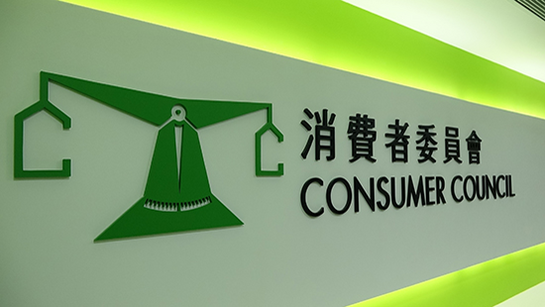The Consumer Council (CC) welcomes the Government taking steps to regulate unsolicited electronic messages (UEMs) that are causing nuisance to consumers. CC is pleased to have the opportunity to be engaged in discussions with stakeholders and the Government in 2004 and 2005 on the desired framework of the proposed anti-spam legislation.
CC would like to comment on the following aspects concerning the proposed legislation.
Scope of the Regulation
CC welcomes the proposal to subject all forms of electronic messages of a commercial nature to the proposed legislation, and feels that perhaps the strictness of regulation against different forms of electronic communication can vary to take account of the different levels of nuisance caused to consumers not receptive to UEMs. CC however has concerns over the exclusion of person-to person voice or video telephone calls that do not have any pre-recorded elements. Uncalled for telemarketing activities carried out via person-to-person communications amount to just as much nuisance and invasion of personal privacy to consumers as automated calls or transmission of pre-recorded electronic messages, and consumers should not be put to the time and expenses of dealing with them.
Currently a lot of telemarketers do not display their call numbers and consumers will have wasted air-time on answering to find out what the calls are about before hanging up. If person-to-person telemarketing calls were to be allowed under the proposed legislation, CC invites the Government to consider overseas experience in handling similar problems. For instance, it is understood that US telemarketers are required to add a signal to their promotional messages. With the signal added, consumers can screen off the messages at their discretion by installing a blocking device in their telephones. A simpler means for Hong Kong to achieve the same purpose may be to assign special number prefix for marketing calls and CC urges the Government to look into feasibility of adopting such practice.
CC also thinks that the adoption of a caller-party charging scheme could alleviate the problems with unsolicited telemarketing calls. Such a scheme would increase the operating costs for using unsolicited electronic messages and telemarketing as a means to promote business and as such would give marketers incentives to be more targeted in sending messages out. Consideration might also be given to charging senders for transmitting marketing materials via e-mails.
CC understands that the adoption of a one-way charging scheme will have implications on the operations of telecommunication services. One possible measure is to apply only the caller-party charging scheme to telemarketing call under a special number/ signal scheme. However, whilst such a scheme could apply to mobile phones, telemarketers could get around the costs problem by using fixed-line telephones, which are charged on a monthly basis for unlimited calls. Further study has to be conducted to explore the practicability of such a scheme.
Do-not-call Register
The Government proposes to adopt an opt-out regime and to have the Telecommunications Authority set up "do-not-call registers" of appropriate types of electronic messages to supplement the functional unsubscribe facility requirement for the opt-out regime.
CC considers that an opt-in approach will give consumers a real choice and an effective means to guard against spamming. Whilst CC appreciates the Government intention to facilitate SMEs and start-up enterprises in Hong Kong to promote their products or services using low cost means, it doubts whether an opt-out regime would be really effective in protecting consumers against exposure to UEMs. Spammers do not generally play by the rules laid down in legislation. What could happen with the functional unsubscribe facility is that in giving notification to unsubscribe, a consumer thereby confirms that the electronic address to which messages have been sent exists. In such a case, spammers outside Hong Kong might actually improve the chance of hitting on the right address to send UEMs to and the nuisance will continue.
Concerning the proposed "do-not-call registers", although placing electronic addresses in these registers should have the same effect as sending an unsubscribe message to all e-marketers, deterrence and any penalty for non-compliance probably only works with subjects under the jurisdiction of Hong Kong. The registers could serve as the means whereby spammers outside Hong Kong harvest the legitimate electronic addresses and create undue nuisance to consumers who have clearly indicated their wish not to receive UEMs. It is necessary for the Government to impose stringent controls on access to the "do-not-call registers" to protect consumer against further nuisance.
In an American case, a US satellite television provider paid $5.3 million to settle Federal Trade Commission charges that it and companies it hired to promote its TV programming violated the Do Not Call Provisions of the Commission's Telemarketing Sales Rule. The case reflects the seriousness with which violation of do-not-call provisions is dealt with in an advanced economy. CC believes that Hong Kong likewise must have penalties in place that are of sufficient deterrent effect to pose a real disincentive, and heavy penalties should apply against both (1) sending spamming communications to addresses or numbers in the "do-not-call registers" and (2) collecting and onward disseminating addresses or numbers in the "do-not-call registers".
The Government may wish to explore the feasibility of constructing a designated web site where lists of telemarketers with a "Hong Kong Link" are posted for consumers to verify that they are dealing with companies subject to Hong Kong jurisdiction, and to subscribe to any of those companies if they so choose.
Consumer Council





